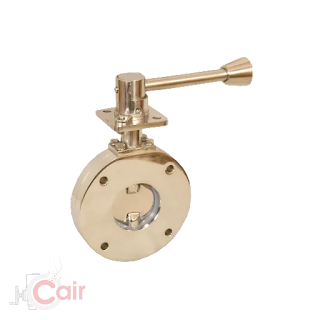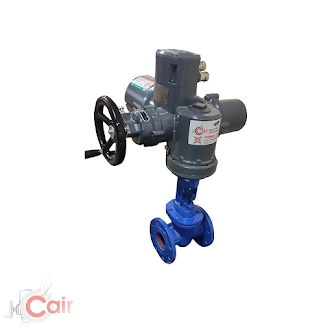PP Ball Valves vs. Traditional Valve Materials: A Comparative Analysis
In the realm of industrial valves, selecting the right material is paramount for efficient and reliable operations. This guide sheds light on the choice between Polypropylene (PP) ball valves and their traditional counterparts.
PP Ball Valves Overview:
Lightweight and corrosion-resistant.
Ideal for water and chemical applications.
Cost-effective and durable.
Traditional Options:
Stainless steel and brass valves.
Robust but may corrode in certain environments.
Higher upfront costs.
Key Considerations:
Fluid compatibility and temperature range.
Budget constraints and long-term maintenance.
Understanding the nuances between PP ball valves and traditional options ensures informed decision-making. For applications demanding corrosion resistance, cost-efficiency, and versatility, the keyword "PP ball valve" emerges as a pivotal solution in modern engineering landscapes.
Material Composition: Unveiling the Structure of PP Ball Valves and Traditional Valve Materials
Understanding the material composition of valves is crucial for selecting the right equipment in various industries. In this exploration, we delve into the structural intricacies of PP ball valves and compare them with conventional valve materials.
Polypropylene (PP) Ball Valves:
Engineered with polypropylene, known for its corrosion resistance.
Robust design ensures durability in diverse operating conditions.
Excellent chemical resistance, making it suitable for a wide range of applications.
Traditional Valve Materials:
Stainless steel valves offer strength and resistance to corrosion.
Brass valves are valued for their reliability and versatility.
PVC valves excel in applications requiring lightweight, corrosion-resistant solutions.
Understanding the nuances of these materials helps in making informed decisions when selecting valves for specific industrial needs. When considering efficiency and versatility, the keyword "PP ball valve" emerges as a noteworthy choice in modern engineering solutions.
Strength and Durability: A Comparative Study between PP Ball Valves and Conventional Valve Materials
In the realm of fluid control systems, the choice of valve material plays a pivotal role in ensuring optimal performance and longevity. This study delves into the comparative analysis of strength and durability between Polypropylene (PP) ball valves and conventional valve materials, shedding light on key considerations for various applications.
Corrosion Resistance: PP ball valves exhibit exceptional resistance to corrosion, outperforming traditional materials.
Chemical Compatibility: The study highlights the superior chemical resistance of PP, making it a preferred choice in challenging industrial environments.
Lightweight yet Sturdy: Despite their lightweight nature, PP ball valves boast impressive strength, ensuring reliability under diverse operational conditions.
Longevity: The durability of PP ball valves proves to be a standout feature, offering a prolonged service life compared to conventional materials.
The research underscores the prominence of PP ball valve in the valve industry, showcasing their strength, durability, and versatility across various applications. Whether in chemical processing or water treatment, the keyword "PP ball valve" stands as a testament to the modern solution for fluid control challenges.
Chemical Resistance: How PP Ball Valves Outperform or Align with Traditional Options
Polypropylene (PP) ball valves have emerged as frontrunners in fluid control systems, offering exceptional chemical resistance and outperforming traditional alternatives. Here's why they stand out:
Corrosion Resistance: PP ball valves excel in corrosive environments, surpassing the corrosion susceptibility of metal valves.
Chemical Inertness: Being inert to a wide range of chemicals, PP valves ensure compatibility with diverse fluids and solvents.
Durability: The robust nature of PP makes these valves durable and reliable in challenging industrial applications.
Cost-Effective: PP ball valves often prove more economical than traditional materials, reducing overall project expenses.
Lightweight Design: Their lightweight construction facilitates easy installation and maintenance.
In the realm of fluid control, PP ball valves have become indispensable, providing unparalleled chemical resistance and cost-effective solutions. When it comes to safeguarding your system from corrosive elements, the versatility of a PP ball valve sets it apart in the most demanding applications.
Temperature and Pressure Tolerance: Analyzing Performance in Different Operating Conditions
Temperature and pressure tolerance are critical factors in assessing the performance of industrial equipment, particularly in the case of valves. Analyzing how a device, such as the PP ball valve, responds to varying operating conditions is essential for ensuring reliability and longevity. Here's a brief overview:
Temperature Range: Understanding the temperature tolerance of a PP ball valve is crucial. It allows for reliable operation in environments with extreme heat or cold.
Pressure Resistance: The valve's ability to withstand varying levels of pressure is vital for maintaining system integrity. Assessing its performance under different pressure conditions ensures its suitability for diverse applications.
Material Durability: Evaluating the materials used in the PP ball valve construction is key to determining its overall robustness. It should withstand temperature and pressure fluctuations without compromising its structural integrity.
In conclusion, a comprehensive analysis of temperature and pressure tolerance in the context of the PP ball valve is essential for optimal performance across diverse operating conditions.




Comments
Post a Comment